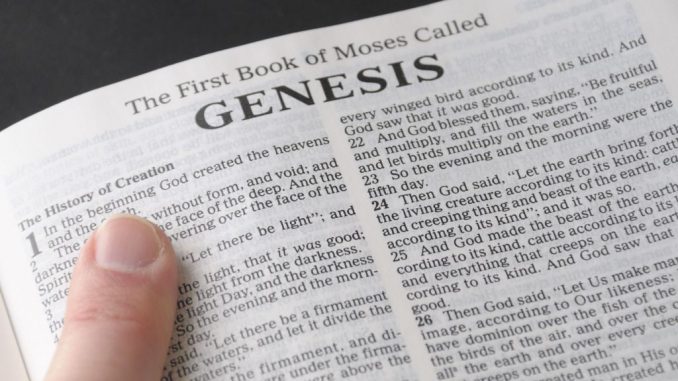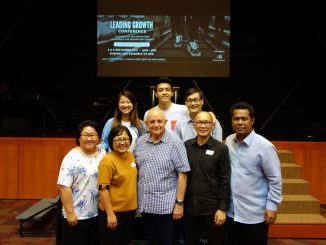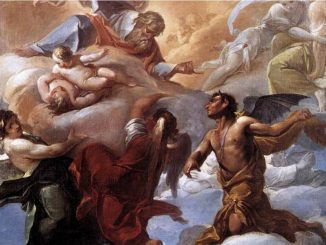
If you have been in the Christian community for some time, you have likely come across friends who are in the Hebraic Roots Movement. Though they may share a similar faith in Christ, they try to align themselves more towards the Jewish culture and practises.
For instance, Hebrew Roots followers worship on the Sabbath and they chose Saturdays in preference of Sundays which mainstream churches usually follow. They follow the feasts that are usually followed by the Jewish people although this has never been instructed by the Lord Jesus Himself.
The movement has been making waves in the world, and it has created some unease among the mainstream churches because of their adherence to the Torah, all in the name of the Hebraic Roots movement. A recent Zoom seminar was held and organised by the Malaysia Baptist Theological Seminary to gain insights from a Jewish Christian to help us make sense of this movement.
Reverend David Zadok, the speaker in the seminar, is the pastor of Grace and Truth Congregation and has served there for 31 years as an elder and pastor. He is also the director of the HaGefen Publishing Ministry and is on the board of National Pastors and Elders in Israel. Among his work, he has been involved in the Israel College of the Bible, church missions to the Jews, and in the First Messianic Research Center.
The Seminar
Rev David conveyed that it was a privilege for him to share his common faith in Christ through a Jewish perspective. He prefers to be called a Jewish Christian rather than a Messianic Jew because the name of Christ bestows a commonality he has with other Christians. ‘The name of Christ is common among us and it’s what makes us one and a new man in Him,’ he expressed.
Among the areas Rev David spoke on is the relation between the Old Testament and New Testament, and how the Old Testament pointed to the coming of the Messiah Christ Jesus, while the New Testament revealed the Messiah to be the Son of God. He explained the context of the conflict between Judaism and Christianity. Some Jews in the early church period believe that the path of Christ and Christianity must go through Judaism of the Old Covenant, and even today, Isaiah 53 and other passages that point to Jesus as the Messiah is still removed from the readings at the synagogues.
A central difference between Judaism and Christianity is in the understanding of the role of the Law – which serves to Christians as a tutor pointing us to the person of Christ until Christ comes again but does not have the power of salvation – and in our understanding of the Messiah who can deliver us from slavery to Satan and sin.
Though Jesus was a Jew, the Jewishness of Jesus completely differed from the Judaism that we know today and from the religious establishment of His day. After the destruction of the second Solomon’s Temple (which was built during Ezra and Nehemiah’s time) in 70AD, rabbinical Judaism developed and three major changes took place. Rabbis and Rabbinical elements replaced Priests and Priesthood, the Yeshiva (Orthodox Jewish College/Seminary) replaced the temple and altar, and oral writings replaced the written law. All this led the Jewish people further away from Old Testament Judaism.
Rev David also gave an insider’s perspective as a Jewish Christian on the traditions of the Jewish people and on such matters as the celebration of the Jewish feasts, circumcision, and how he and his family now celebrates Hanukkah. He expressed that these traditions have stood the test of time and have proven to be good and helpful, but that tradition should not take over the place of the Word of God. Because Christ Jesus has fulfilled the Law, we are no longer obligated to strict adherence to the ceremonial and civil parts of the Mosaic Law. The seminar closed with a question and answer session.
Rev David Zadok’s Impartation
Rev David imparted that we should be fascinated with Jesus and His words, and not with Judaism, Rabbinical Judaism, and all that it offers. ‘It is His Word, the Word of God that has the power to change us, as we are told in Isaiah 55:10-11, and not the letters of the word or the book itself.
‘The Gospel is simple and easy to understand, a little child can understand it and an old man can understand and believe it. We don’t need to be experts to understand it, and there is no secret Gnostic teaching in it that requires special knowledge. But God in His great wisdom and goodness has made it available to us all, and in our own languages that we can read, understand, and apply it.’
This article is written from a news perspective and has provided only a broad-stroke outline of the seminar. It is written from a neutral stance and from an evangelical Christian perspective for a Christian readership. The video is attached here for readers who would like to know more:
|Share The Good News|




I am glad he sees himself as a Jewish Christian. His views are biblical. https://bit.ly/3ybcb2O